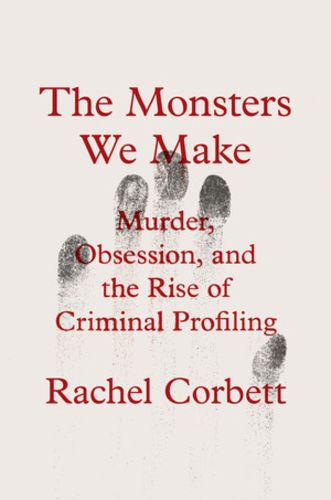Readings Newsletter
Become a Readings Member to make your shopping experience even easier.
Sign in or sign up for free!
You’re not far away from qualifying for FREE standard shipping within Australia
You’ve qualified for FREE standard shipping within Australia
The cart is loading…






Criminal profiling-the delicate art of collecting and deciphering the psychological "fingerprints" of the monsters among us-holds an almost mythological status in pop culture. But what exactly is it, does it work, and why is the American public so entranced by it? In The Monsters We Make, prize-winning author Rachel Corbett explores how criminal profiling became one of society's most seductive and quixotic undertakings through six significant moments in its history. She delves into Arthur Conan Doyle's work on the Jack the Ripper case, Harvard psychologist Henry A. Murray's pioneering profile of Adolf Hitler and his later experiments on his student Ted Kaczynski, and the FBI's famed Behavioral Science Unit's investigations of such killers as Ted Bundy. Taking the story into our own time and the use of "predictive policing," Corbett examines how thin the line separating those who do harm and those who aim to stop it can be.
$9.00 standard shipping within Australia
FREE standard shipping within Australia for orders over $100.00
Express & International shipping calculated at checkout
Stock availability can be subject to change without notice. We recommend calling the shop or contacting our online team to check availability of low stock items. Please see our Shopping Online page for more details.
Criminal profiling-the delicate art of collecting and deciphering the psychological "fingerprints" of the monsters among us-holds an almost mythological status in pop culture. But what exactly is it, does it work, and why is the American public so entranced by it? In The Monsters We Make, prize-winning author Rachel Corbett explores how criminal profiling became one of society's most seductive and quixotic undertakings through six significant moments in its history. She delves into Arthur Conan Doyle's work on the Jack the Ripper case, Harvard psychologist Henry A. Murray's pioneering profile of Adolf Hitler and his later experiments on his student Ted Kaczynski, and the FBI's famed Behavioral Science Unit's investigations of such killers as Ted Bundy. Taking the story into our own time and the use of "predictive policing," Corbett examines how thin the line separating those who do harm and those who aim to stop it can be.